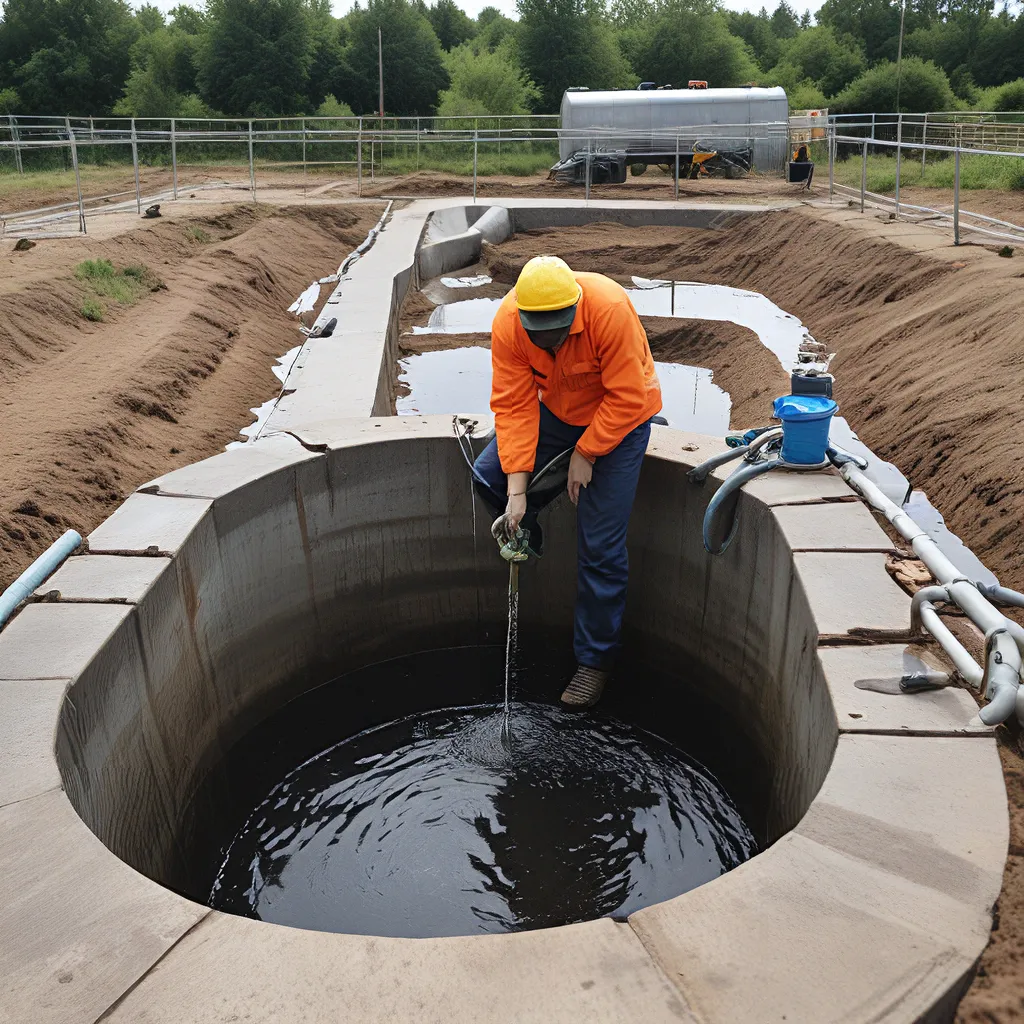
As someone who’s passionate about the environment and public health, I’ve always been fascinated by the unsung heroes of the water industry – the hardworking men and women who keep our taps flowing and our toilets flushing. But in the midst of a global pandemic, these essential workers have faced unprecedented challenges in protecting themselves while ensuring the continued delivery of clean water and proper wastewater management.
Navigating the COVID-19 Landscape
When the COVID-19 outbreak first shook the world, there was a lot of uncertainty surrounding the virus and its potential impacts on the water sector. Could the virus be transmitted through wastewater? How could water and wastewater workers stay safe while carrying out their critical duties? The stakes were high, and the need for clear guidance was paramount.
Fortunately, the water industry, in collaboration with public health authorities, quickly mobilized to address these concerns. The Water Environment Federation (WEF) convened a Blue Ribbon Panel of experts to evaluate the latest scientific evidence and provide recommendations for protecting wastewater workers. The findings were clear: the occupational risk of COVID-19 infection for these essential employees is low, and standard wastewater treatment processes are effective in inactivating the virus.
According to WEF, “the scientific community has found no evidence of viable COVID-19 virus in wastewater systems.” While there’s still much to be learned, it appears that contracting COVID-19 through exposure to wastewater is unlikely. This is certainly reassuring news for the dedicated professionals who have continued to keep our water and wastewater systems running smoothly throughout the pandemic.
Lessons Learned and the Way Forward
The COVID-19 crisis has undoubtedly been a wake-up call for the water sector, highlighting the critical importance of worker safety and the need for robust emergency preparedness plans. As we look to the future, I believe there are valuable lessons we can take away to strengthen the resilience of our water infrastructure and better protect the individuals who operate it.
First and foremost, the pandemic has underscored the vital role that water and wastewater workers play in safeguarding public health and sustaining our communities. These individuals have been rightfully designated as essential critical infrastructure workers, and their access to prioritized vaccination should be a top priority for state and local authorities.
The Cybersecurity and Infrastructure Security Agency (CISA) has recognized the water and wastewater sector as critical to modern life and the nation’s economy, emphasizing its vulnerability to a variety of threats, including contamination, physical attacks, and cyberattacks. This heightened awareness has led to a renewed focus on robust safety protocols, emergency response planning, and cybersecurity measures to ensure the continuity of these essential services.
Moreover, the pandemic has highlighted the importance of clear, science-based communication between public health authorities, industry leaders, and frontline workers. As the COVID-19 situation evolved, the WEF, the Centers for Disease Control and Prevention (CDC), and other trusted organizations worked tirelessly to provide water professionals with the latest guidance and resources to help them navigate the challenges.
Embracing a Culture of Safety
Looking ahead, I believe the water sector must continue to foster a culture of safety that prioritizes the well-being of its workers. This means not only implementing robust safety protocols and providing appropriate personal protective equipment (PPE) but also empowering employees to speak up about concerns, participate in the development of safety policies, and feel supported in their efforts to protect themselves and the communities they serve.
It’s also crucial that water and wastewater utilities stay vigilant and adaptable in the face of emerging threats, whether they be pandemics, natural disasters, or malicious attacks. By investing in ongoing training, simulation exercises, and cutting-edge technologies, these organizations can better anticipate and respond to a wide range of challenges, ensuring the resilience of our critical water infrastructure.
A Call to Action
As we navigate the new normal in a post-COVID world, I believe the water sector has a unique opportunity to lead by example and redefine the way we approach occupational safety and emergency preparedness. By prioritizing the well-being of our water and wastewater workers, we can not only safeguard their health and the health of our communities but also inspire other industries to follow suit.
At Alpha Wastewater, we are committed to being at the forefront of this movement, working closely with our employees, partners, and industry leaders to ensure that the water sector remains a shining example of how to protect those who protect our most precious resource. Join us in this important mission, and together, we can secure a safer, more resilient future for all.